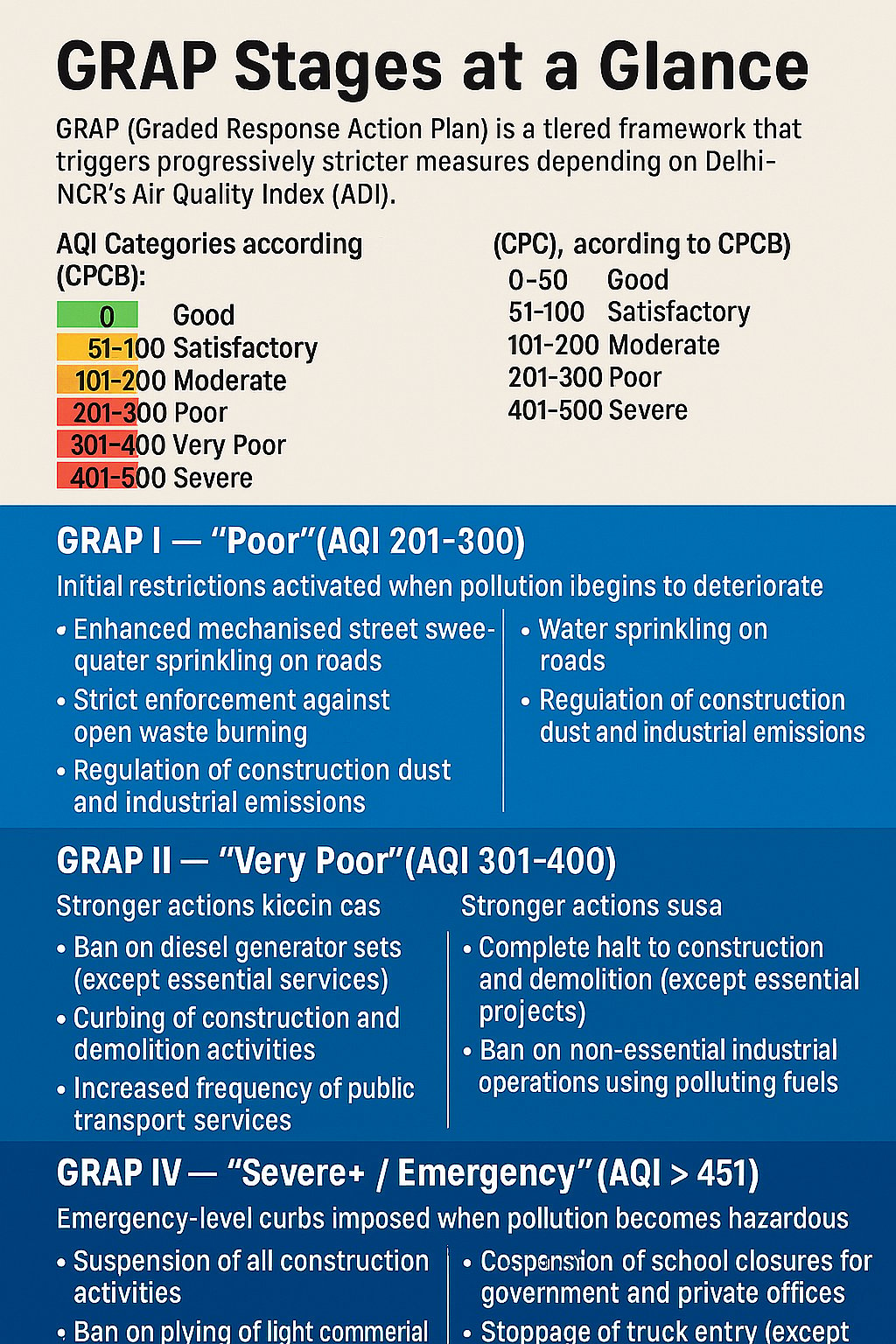Delhi pollution: SC for long-term solution, no to all-year ban on polluting activities
Judges underline need for coordinated governmental action, directs MoEFCC to work with officials from Punjab, UP, Rajasthan, Haryana

The Supreme Court on Monday set 19 November as the next date of hearing in the Delhi-NCR air pollution case, directing the Union government to present a comprehensive plan of action on that day even as it issued a series of instructions to both the Centre and the Delhi government.
At the outset, the Bench comprising Chief Justice of India B.R. Gavai and Justices K. Vinod Chandran and N.V. Anjaria stressed that Delhi’s persistent air crisis can no longer be managed through piecemeal or short-term interventions. “However, we are of the view, which is agreed by amicus (curiae) and the ASG, that the issue cannot be looked at with a temporary solution and a long-drawn solution needs to be looked at,” the court observed, noting that multiple previous orders had failed to stem pollution levels.
The judges underlined the need for coordinated governmental action, directing the Ministry of Environment, Forests and Climate Change (MoEFCC) to work jointly with officials from Punjab, Uttar Pradesh, Rajasthan and Haryana to craft a sustained, graded response.
“A large chunk of the population depends on various activities for their livelihood in the capital... We agree with the amicus and the ASG that a long-term solution is needed to tackle the menace of pollution in a graded manner. For that, a combined action by the MoEFCC along with Punjab, Uttar Pradesh, Rajasthan and Haryana officials is needed,” the CJI said.
The bench also asked the Delhi government to submit an affidavit clarifying the technology and accuracy of its AQI monitors, following concerns raised about water being sprinkled near monitoring stations to artificially bring down pollution readings.
“Let the GNCTD (Government of the National Capital Territory of Delhi) file an affidavit explaining the nature of equipment being used and its efficiency to gauge AQI monitors. Please bring it day after tomorrow,” the court directed.

Also Read: Is India jettisoning its climate goals?
Despite submissions urging blanket, year-round prohibitions on all activities restricted under the Graded Response Action Plan (GRAP), the court refused to override the scientifically designed tiered system. “We do not possess expertise to deal with the same. We are therefore not inclined to act on the submission of Mr Sankarnarayanan that all activities (prohibited from GRAP I onwards) be stopped in Delhi,” it said.
The court also covered the issue of agricultural fires or deliberate stubble burning to clear fields for new crops, placing clear responsibility on Punjab and Haryana to enforce the Commission for Air Quality Management’s (CAQM) recommendations.
"If the CAQM's suggestions to Punjab and Haryana are implemented, then stubble burning can be adequately tackled. Thus, we direct both states to have a combined meeting and ensure that the CAQM's suggestions are scrupulously implemented," the Bench ordered.
The court also noted that the Union environment minister had convened a meeting on 11 November. "It is also stated that the Union environment minister held a meeting on November 11 and that within a day, appropriate instructions could be taken to find out appropriate steps to be taken to deal with the menace of pollution," it said.
Amicus curiae Aprajita Singh pointed out that though Punjab’s affidavit claimed a fall in stubble-burning incidents, there had been “no reduction in pollution levels”. The bench echoed this concern, recalling that on 12 November, it had asked Punjab and Haryana to report on their actions as air quality deteriorated due to farm fires. Earlier, on 3 November, it had directed the CAQM to detail the steps taken to prevent worsening pollution.
The judges reiterated that isolated or reactionary measures — whether GRAP-triggered bans or episodic crackdowns on farm fires — cannot deliver sustainable relief. Despite reported dips in burning incidents, pollution levels have not improved, the bench noted.
With PTI inputs
Follow us on: Facebook, Twitter, Google News, Instagram
Join our official telegram channel (@nationalherald) and stay updated with the latest headlines
